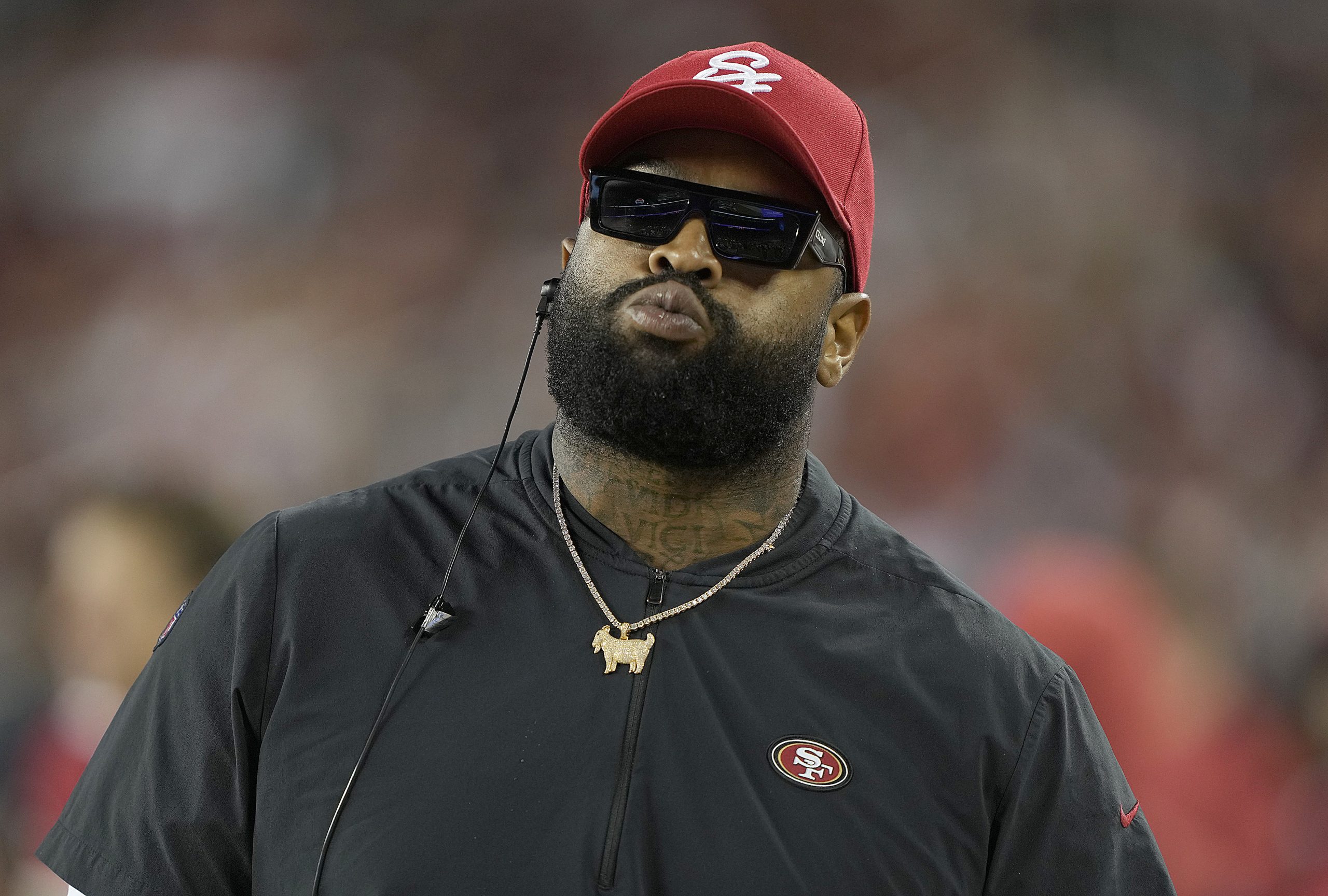Advocating for Your Health Means Watching Out for Symptoms, Pushing for Clear Answers
- NFL football star Trent Williams, 35, was diagnosed with a rare slow-growing cancer called dermatofibrosarcoma protuberans (DFSP) after believing the bump on his head was a benign “cyst” following several doctors dismissing his concerns. He underwent emergency surgery to beat the cancer and eventually returned to playing football.
- Williams’ cancer journey highlights the value of getting a second opinion. After a grim diagnosis, another physician studied his tumor with advanced imaging and suggested surgery.
- According to the National Cancer Institute, dermatofibrosarcoma protuberans are best treated with Mohs surgery. This procedure involves using a technique that removes skin layer by layer until all the cancer is gone.
- Williams pushed for answers, and that’s an example of advocating for your health. By doing this, you can possibly get better outcomes. Sometimes, this includes going back to your doctor multiple times or seeking a second and third opinion from different doctors.
NFL football star Trent Williams, 35, says he had to put football on the sidelines after an unsuspecting spot on his head turned out to be a rare cancerous tumor he initially dismissed as a cyst. The father of three was admittedly scared after being told he didn’t have long to live, but luckily, another opinion led him to successful treatment that would help lead him back onto the football field.

Williams plays offensive tackle for the San Francisco 49ers. The mighty football player, though tough, isn’t impenetrable, as evident with a cancer diagnosis that was roughly five years in the making. Williams said he had a bump on his head that had been there for years. He first noticed it in 2013. Williams said he would have the bump – he deemed a cyst – checked periodically by doctors who repeatedly told him it was benign. However, over time, it continued to grow in size. In 2019, determined to get a solid answer, Williams went to his team of doctors for an evaluation.
Read More
“You need to get your affairs in order,” the doctor continued.
Understandably, Williams was shaken up, and once he returned home from the doctor’s office, he didn’t say anything to his family.
“It was an out-of-body experience,” Williams said. He added that he started to think of his children.
Williams said doctors told him there was a chance the tumor could spread to his brain, making it more challenging to treat.

His mother, a nurse, urged him to get a second opinion. Second opinions are highly recommended, especially after receiving a cancer diagnosis, for several reasons.
“If I had any advice for you following a cancer diagnosis, it would be, first, to seek out multiple opinions as to the best care,” National Cancer Institute Chief of Surgery Dr. Steven Rosenberg told SurvivorNet in a previous interview. “Because finding a doctor up to the latest information is important.”
WATCH: Why a Second Opinion Matters
RELATED: Second (& Third) Opinions Matter When Deciding Between Surgery or Radiation
Not all doctors agree on the right course of treatment, and advances in genetics and immunotherapy are creating new options. For these reasons, a second opinion is critically important to ensure you get the best care possible.
The football star saw another doctor who could do more advanced imaging tests, which gave doctors a clearer picture of the status of the tumor.
“The tumor is attached to your skill, and although it looks like it’s metastasized (spread), it actually hasn’t metastasized yet, so we’ve got to get this done right now,” Williams said.
According to research published by the NCI, Dermatofibrosarcoma protuberans is best treated with Mohs micrographic surgery. Mohs surgery involves using a technique that removes skin layer by layer until all the cancer is gone. The idea is that by making the tiniest cuts and evaluating them microscopically, the surgeon knows for certain that all the cancer is out when the last piece of tissue proves to be clear.
Within 24 hours, Williams underwent surgery for treatment. He spent two weeks in the hospital to recover from surgery, and luckily, he was able to not only beat the cancer but return to playing football a year later.
“Every time I go into a locker room, every time I put the helmet on. I flash back and think about the time when the doctor said, ‘Get your affairs in order,” Williams said amid added gratitude he was able to beat cancer.
Expert Advice for Advocating for Your Health
Advocating for Your Health Can Be Lifesaving
Williams was determined to get clear answers after being told for years that the “cyst” on his head was nothing to worry about. Thankfully, his persistence led to a diagnosis and subsequent treatment.
Patients advocating for their health can lead to better patient outcomes. This is especially important when you find your doctor has misdiagnosed your symptoms.
A component of advocating for yourself in healthcare includes going back to the doctor multiple times and even getting multiple opinions.
Dr. Steven Rosenberg is the National Cancer Institute Chief of Surgery, and he previously told SurvivorNet about the advantages of getting input from multiple doctors.
RELATED: Cancer research legend urges patients to get multiple opinions.
Questions for Your Doctor
If you find yourself experiencing unusual symptoms, such as a lingering cough or a part of your body, that’s painful to touch; these are things you should bring to your doctor’s attention.
Here are some takeaways to think about when talking to your doctor.
- Are you experiencing pain or fever that won’t go away?
- Are you gaining or losing weight unexplainable?
- Have you discovered any bumps, spots on your skin, or lumps on parts of your body that cannot be explained?
- Are you struggling to get a good night’s rest?
- Are you noticing changes in your bathroom habits, such as blood in your urine or stool?
Learn more about SurvivorNet's rigorous medical review process.
